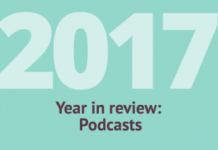Transition into Poverty May Worsen Child and Maternal Mental Health
Transitioning into poverty linked to behavioral issues in children, but may be mitigated by mother’s mental health.
Researchers Question the Utility of an ADHD Diagnosis
A new article examines the usefulness of the ADHD diagnosis and suggests alternatives
Textbooks Provide Misleading Information on the Neurobiology of ADHD
When it comes to ADHD, some researchers suggest that medical textbooks provide inaccurate and misleading information.
Study Highlights Mental Health Consequences of Parent Emotion Suppression
New research suggests that when parents model emotion suppression strategies in social interactions, their children’s approaches to social engagement may suffer.
Technology Not a Strong Factor in Adolescent Well-being, New Study Claims
A new study suggests digital media use among adolescents has a smaller negative effect on well-being than bullying or smoking marijuana.
“The Guardian’s Bad Hair Day”
“No, cortisol in hair can’t ‘reveal future mental health risk’ in children.” HealthNewsReview gives a low rating to a recent story in the Guardian that reported that cortisol levels in children’s hair might be a useful mental health screening tool.
“Misuse of ADHD Label as Symptom of a Broken Health Care System”
Pediatrician Claudia Gold writes "The economic reality of primary care practice, due in large part to the administrative costs of managing a huge array...
ADHD Unrelated to Dopamine Dysfunction
Research from the University of Cambridge finds that "dopamine dysregulation per se is unlikely to be the primary cause underlying attention deficit/hyperactivity disorder pathology...
Researchers Reveal Misconceptions About ADHD
A new article explains common misconceptions about ADHD that are held by teachers and mental health professionals and may lead to overdiagnosis and overmedication in schools.
“The Myth of the Ever-More-Fragile College Student”
“The point, overall, is that given the dizzying array of possible factors at work here, it’s much too pat a story to say that kids are getting more 'fragile' as a result of some cultural bugaboo,” Jesse Singal writes in response to the flurry of recent think pieces decrying the weakened resolve of today's college students.
Extend Your Child’s ADHD Summer Drug Holiday to Infinity and Beyond!
With school starting across the country, from the perspective of most kids, the fun is officially done. Summer by youthful definition is basically over. Meanwhile, parents nationwide are basking in this euphoric occasion. No longer will they hear every five minutes the astute yet shortsighted exclamation “I’m bored, there’s nothing to do!” Finally parents can switch their XM channel from Hits 1 back to Coffee House without being berated for being so old. But due to the popularity of the ADHD diagnosis, many parents also are debating whether to extend their child's ADHD summer drug holiday into the school year, or once again start drugging the child-like behaviors associated with the symptoms of the controversial ADHD diagnosis.
Medicating ADHD: Diagnosis and the Long-Term Effects of the Medications
Robert Whitaker appears on Science for the Public on March 20, 2013, speaking about how the ADHD is diagnosed and why users of medications...
The Scientism of Attention Deficit Hyperactivity Disorder (ADHD)
Calling ADHD a diagnosis, i.e., something with the capacity to explain the behaviours that it describes, is like saying the headache is causing the pain in my head or the inattention is caused by inattention. Scientism has turned ADHD from a vague, difficult to pin down concept into a fact of culture masquerading as a fact of nature.
Book Review: “Overmedicated and Undertreated”
A former pharma executive has broken ranks with the industry in a new book by reporting how multiple psychiatrists, schools, and his desperate hopes pressed him to allow higher and higher doses of antipsychotic medications. The result: his 15-year-old son's death from Seroquel.
“The United States of Adderall (Part III)”
Lawrence Diller continues his series on the uses and abuses of Adderall. "You take some Adderall, go through withdrawal, build up tolerance, take some...
Podcast: The Top 10 Quotes of 2017
In this podcast for HealthNewsReview.org, Michael Joyce shares what he considers the 10 most compelling quotes from last year's podcast episodes. The quotes include a wide variety...
Micronutrients for ADHD Symptoms in Children
Over and over again, we have shown that additional nutrients positively affect behaviour and mental states. This research offers further evidence that children with ADHD, mood dysregulation and symptoms of aggression should be given the opportunity to try micronutrient treatment FIRST.
“The Drugging of the American Boy”
Esquire discovers that "By the time they reach high school, nearly 20 percent of all American boys will be diagnosed with ADHD. Millions of...
Sluggish Cognitive Tempo – A New Diagnosis?
On April 11, 2014, journalist Alan Schwarz published an article in the New York Times on this topic, titled Idea of New attention Disorder Spurs Research, and Debate. In the article Alan draws attention to the fact that sluggish cognitive tempo (SCT) is being promoted as a new disorder "… characterized by lethargy, daydreaming and slow mental processing." He makes the obviously valid point, that the formalization of such an entity "… could vastly expand the ranks of young people treated for attention problems."
News Flash: 4.5 Million Children Forced Daily by “Caretakers” to Do Cocaine-like Drugs
Before we get to the meat and potatoes documenting how this headline is not only shocking but also accurate, you must know that a secondary goal of this blog is to test a few theories. I have been pondering these theories because it seems to be a mystery as to why (after more than two decades of whistleblowers warning the public) so many adults have not heard or heeded the news that ADHD stimulant drugs, which are not that different from cocaine, are extremely dangerous for kids.
“A Checklist to Stop Misuse of Psychiatric Medication in Kids”
Former DSM-IV task force chair Allen Frances takes aim at the “massive overuse of psychotropic medication in children” in an article for the Psychiatric Times. He shares a checklist of questions for doctors to consider before prescribing medication to children. Frances warns: “We simply don’t know what will be the long-term impact of bathing a child’s immature brain with powerful chemicals.”
“ADHD Brains are the Most Creative”
In AlterNet, Scott Barry Kaufman reviews the evidence that people who've been diagnosed with ADHD often have higher than average levels of creativity. He...
Linking Screen Time, Smartphones, and Stress Among Young Adults
New review ties increased screen time to increasing anxiety and depression among young adults throughout the United States.
Chew on This: FDA Embraces Big Pharma; Takes Aim at Big Gum
May 8th in the USA Today: “WASHINGTON (AP) — Wrigley says it is taking a new caffeinated gum off the market temporarily as the Food and Drug Administration investigates the safety of added caffeine.” Really? Major Tranquilizers, Amphetamines, Benzodiazepines, and Selective Serotonin Reuptake Inhibitors have all been approved by the FDA for the treatment of “mental illness.” These drugs are being prescribed to youth, some as young as 3 and 4 years of age. My Big League Chew is more dangerous than Uncle Jim’s Seroquel or my big brother’s Adderall?
Increasing Physical Activity in Schools May Improve Mental Health
A new article suggests integrating physical activity throughout the day may help to address the mental health of students.




















